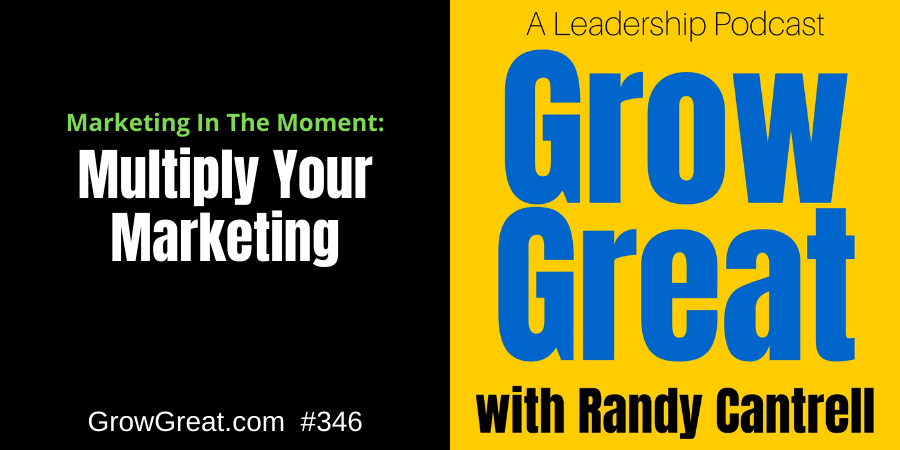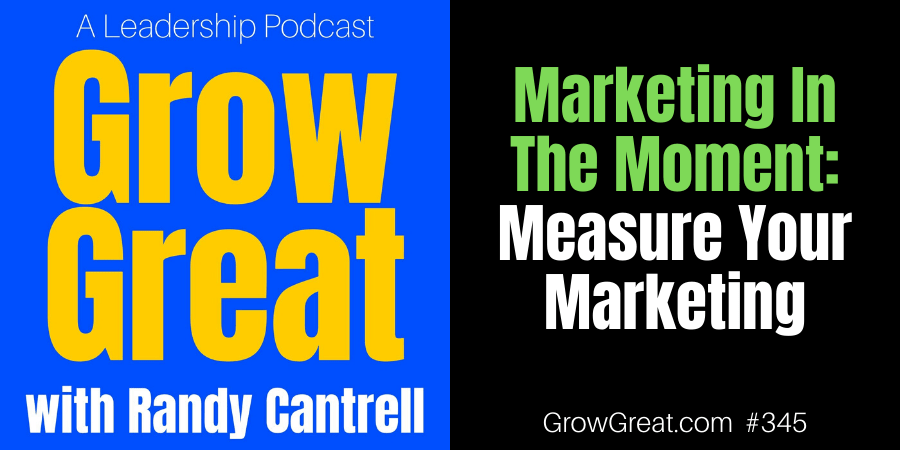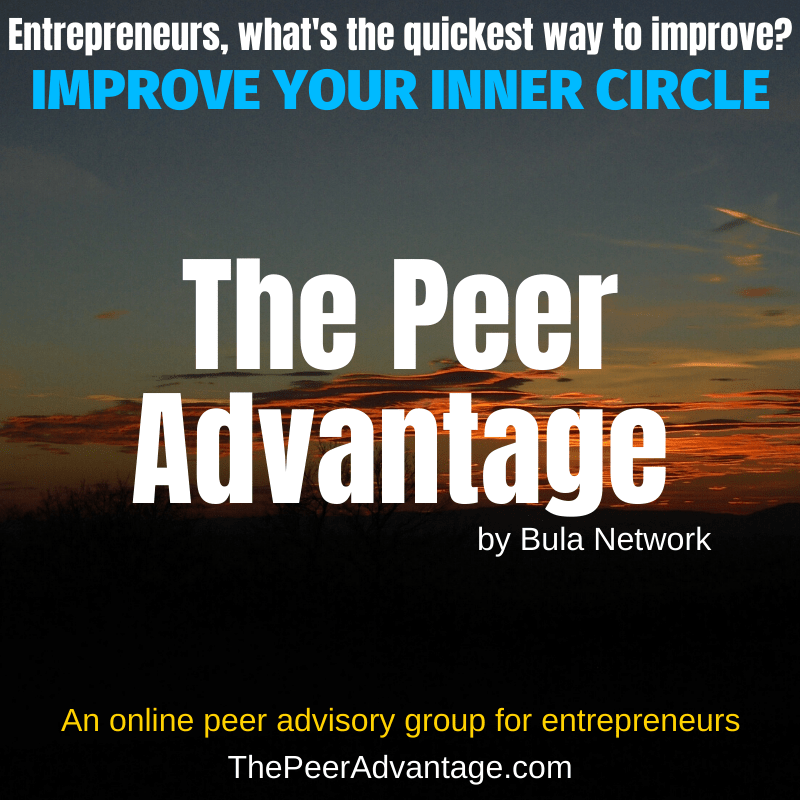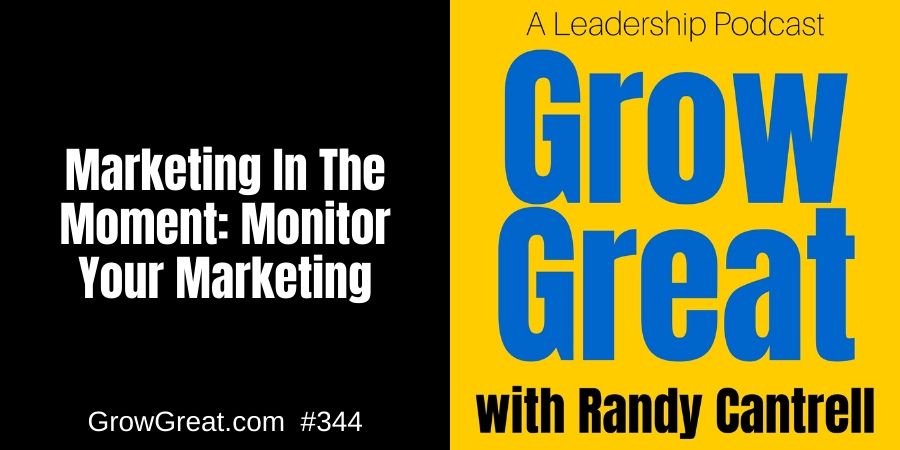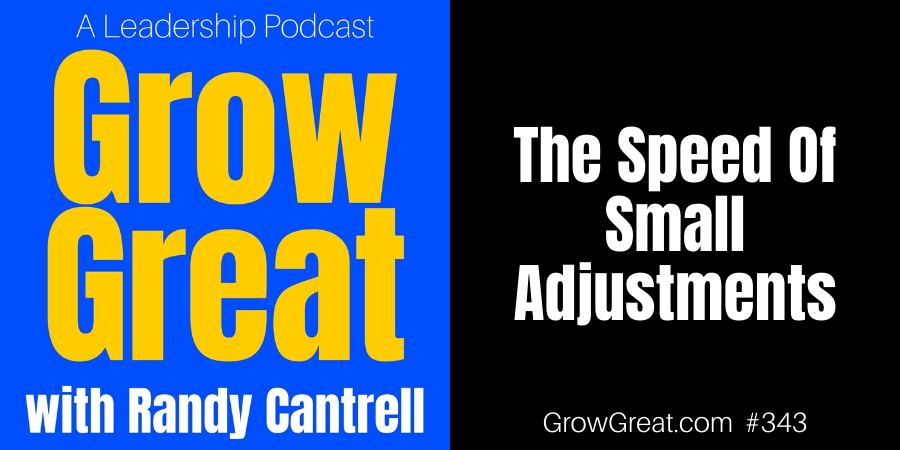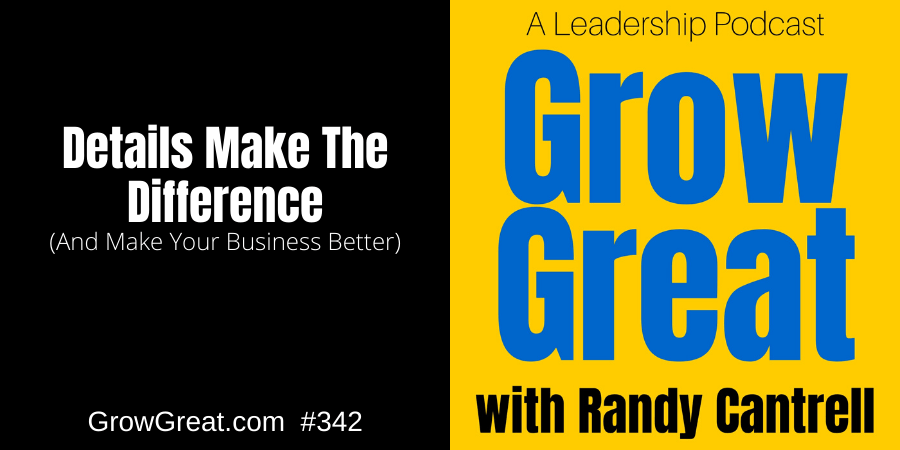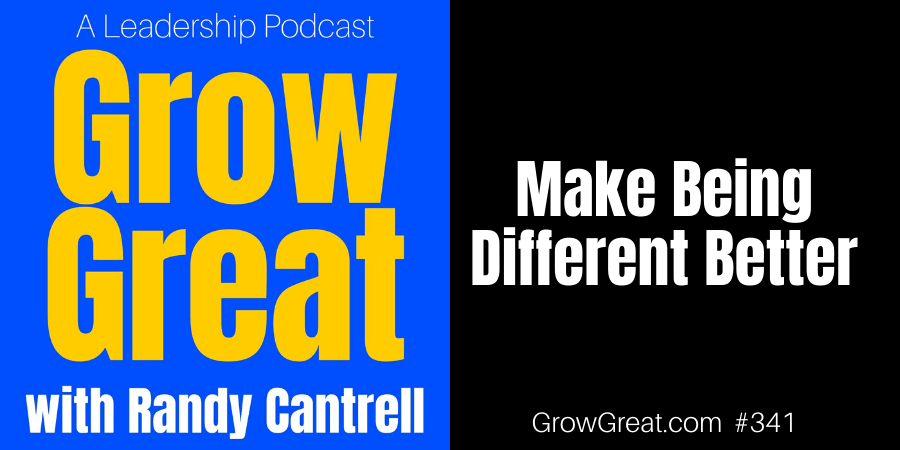Marketing In The Moment: Multiply Your Marketing (346)
Podcast: Play in new window | Download (Duration: 20:59 — 19.7MB)
Subscribe: Apple Podcasts | Spotify | RSS | More
We wrap up this week’s series on Marketing In The Moment with some thoughts about multiplying our marketing. One obvious way to do that is with money, but writing checks isn’t my point today. If you can write bigger checks and effectively drive business growth, then by all means…write the checks. Most of us don’t have unlimited funds though. Most of us have a lot more fear than funds.
The reason Wednesday’s podcast focused on measuring marketing was because we need to know if we’re getting a return. Whether we call it CAC (client acquisition cost) or something else, it’s urgent that we understand what kind of investment is required – in time, money, effort, talent, etc. – to acquire a client. When you’re starting out that’s super hard — and it may even be impossible.
Let’s suppose I knew I could invest $1,000 to get a client. And let’s suppose a typical client resulted in $5,000 worth of business. Well, the math is easy, provided we know the profit margin exceeds 20% ($1,000 is 20% of $5,000 — which would enable me to at least earn back the money I spent to acquire the client). But wait a minute. That’s just break-even at getting the client. What about the time, effort and expense to deliver any value to the client? The margin has to be vastly better than 20% in order to make that $1,000 CAC worthwhile.
If the margins are 80% then a $5,000 client can produce $4,000 of profit. Question: Would you trade $1,000 for $5,000 gross? For $4,000 profit? Duh! Of course, as fast as possible. So you COULD write that $1,000 check all day long if you knew it would result in one typical client. It’s one way to multiply marketing.
Of course, things often look easier and more attractive on paper than in the wild. Client or customer acquisition is hard. Else all we’d need would be enough money to get started. Say, that’s first $1,000 check. We’d profit $4,000, then we could theoretically write four $1,000 checks and end up with $16,000 profit, then write sixteen $1,000 checks and end up $64,000 and sky is the limit.
It doesn’t work that way in real life though. We write the $1,000 check, we hustle, we talk to anybody and everybody we can talk to and all we hear are crickets chirping. There are NO guarantees.
Multiplying marketing is about improving odds. Not much more.
I know you’d like promises, guarantees and solid solutions that work every single time. They just don’t exist. Sorry.
What does exist is a lot of hard work, a lot of fear, even more, rejection and somewhere out there – in the future – a point where you figure something out and it works. But know this. It won’t keep working so you have to keep moving, like a shark constantly prowling for something to eat.
The big idea that leaps to my mind when we talk about multiplying your marketing is attention. We used to call it visibility back in the pre-Internet age, but it really is attention. Whether it was advertising on radio, TV or the newspaper. Whether it was a PR campaign that was traditional or perhaps guerilla marketing where we were willing to be a bit off-the-wall. It all boiled down to our need to be seen or heard. We needed people to notice. Visibility has long been the key to success. At most everything business-related.
I know some “influencers and thought leaders” who quite frankly aren’t any sharper (or as sharp) as some people nobody knows. In fact, I know far more business people who are vastly superior to “influencers and thought leaders” but because of their lack of visibility nobody gives them credit. Out of sight, out of mind.
The majority of influencers and thought leaders I know have one skill over those anonymous brilliant people. They self-promote. Well. They’ve figured out how to get people’s attention. The really good ones aren’t just good at it, they LOVE it. Introverts like me hate it, but I appreciate those who can do it…and especially those who do it well.
Multiplying your marketing means you increase the attention coming to your business. But more specifically it means you increase the POSITIVE attention coming your way. I say this in spite of the fact that there seems to be tremendous evidence that even negative attention can be leveraged to pay off. I’m just not willing to go there because it’s not how I want to play the game.
How can we leverage – multiply – having people say good things about our business? How can we leverage or multiply the positive attention for our business?
At heart, I’m a merchant and an operator. Those are my roots so I admit that bias upfront. Those roots mean I’m always thinking about the end-user, the customer. But first I’m thinking of the shopper, the prospect. Without them, we have no hope of getting a customer. We need people interested in our offer. That’s where it starts.
The operator in me focuses on multiplying our marketing with our existing customers. That’s why it’s the second leg of the business building trifecta:
- Getting new customers
- Serving existing customers better
- Not going crazy in the process
So for starters, if you’re not currently dazzling your customers then I’m going to push you to start there. Fix that. Today. Right now. Don’t focus on anything else until you get that mastered. They’ll start talking about you. They’ll tell others how great you are and that’ll result in growth.
Finding People Who Are Interested
First, they have to know who we are and what we do. Marketing’s real job is to have prospects raise their hands to say, “You’re talking to me.” The more we can multiply our marketing, the more hands we should see go up. The more hands go up the more people we should be able to convert into customers. Remember, we’re going to dazzle every single one of them, too.
Think of going into a big ballroom full of people. Are they all prospects? You have no way of knowing. You could work the room interacting with as many people as possible. Let’s assume you’re not going to be that sleazy “here’s my business card” kind of person. Instead, you’re going to be thoughtful, engaging and interested. So you’re trying to get to really know as many people as possible. It’s a good strategy. Time-consuming, but good. And it beats standing on a chair shouting to the entire room, “I’m Randy and let me tell you about my company.”
Multiplying your marketing would be putting on an event where you give a keynote address about something congruent with your expertise (and what you do in your business). By hook or crook, you get as many people into that ballroom as possible only this time you’re not working the crowd. You’re on the stage at the front of the room with a mic in your hands. The room is more likely filled with prospects simply because they responded to come hear you speak on a topic that speaks directly to what you and your business do. You give your speech, hoping to give folks as much value as possible. There’s no sales pitch, but a high-value presentation, along with refreshments and an atmosphere for folks to mix and mingle before and afterward. Your company sponsors the event, but otherwise, you let folks ask how you might help them.
It’s not just quantity, it’s quality. Can you approach your marketing to improve the quality of the people in the room – meaning, the people are more likely to be a fit for your business than not? Yes. We can all do that.
It’s time to put on our thinking caps and figure out ways to do that more effectively. That means we need to be more creative. We’ve got to stop waiting for an epiphany to hit us. Get clever. Get creative. Take some risks. Have some fun. Get in front of more people. Get more people into your world.
We’ve all got marketing challenges that require us to multiply our marketing as we can get the attention of more people. Here’s the goal – we reach more people thus giving more people the opportunity to know what we do so they can figure out if we’re the right solution for them. If what we do provides high value, then we earn enough profits to keep doing it for existing customers and for new customers.
We’re driven to want to serve and help more people. By multiplying our marketing we multiply our business and our positive impact in the world. Growing great is the pursuit. We can do it.
Me? I’m spreading the word about a unique opportunity for business owners to achieve accelerated growth in their business, their leadership, and their lives. It’s a 7-member mastermind group that serves as a board of advisors helping each member make better decisions.
If you’re the owner of a business doing at least $3 million in annual revenues then please go check out The Peer Advantage by visiting the page and click that apply now button. No obligation. We’ll jump on the phone, have a conversation and together we’ll figure it out.
Next week is Thanksgiving. I’m going to be traveling all week so go back and listen to some episodes from the archives because I won’t be producing any new episodes next week. Lord willing, I’ll be back the first week of December.
Thanks for listening!
Be well. Do good. Grow great!
Randy
Marketing In The Moment: Multiply Your Marketing (346) Read More »
